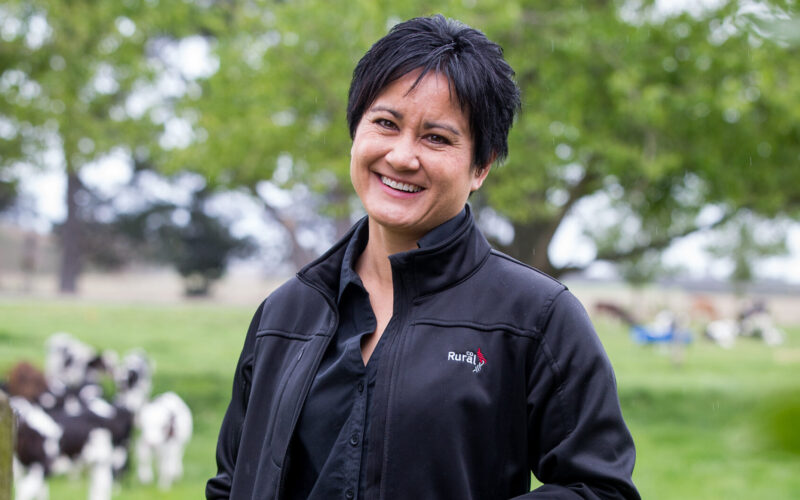Jessie Chan is standing down as chair of the Ruralco rural supply chain next month, acknowledging it is time for fresh blood to take on the role as she looks forward to new governance challenges.
She says it is important for leaders to recognise when the time is right to step aside.
The first female to head a major New Zealand agribusiness co-operative, Chan, at 54 years of age, boasts an impressive governance career spanning almost 20 years. It includes leadership and director roles with Alpine Energy, Ngāi Tahu Farming, DairyNZ, Fonterra Shareholders’ Council, Federated Farmers, Business Mid Canterbury, and nine years with Ashburton Trading Society (ATS) Ruralco.
She was the 2017 Dairy Woman of the Year, the Canterbury Institute of Directors aspiring director 2014, and in 2022 was bestowed the Member of the New Zealand Order of Merit for services to dairy and agriculture.
Chan is currently a director of Bio Protection Aotearoa and NZ Pork.
She is quite deliberate in what she takes on and is always looking to ensure her governance roles inter-connect in a way that serves the community and wider industry.
“It is also important to know when your job is done and the time is right to step aside and make way for fresh blood,” Chan says.
This, she says, is key to effective leadership.
In her leadership style Chan strives to inspire people to take up leadership roles and to help others to achieve their goals.
She says skills are important, but ultimately it is attitude that determines the effectiveness of those skills to lead with integrity, consistency and flexibility.
“There is a fine line between humility and leadership around making bold decisions and taking a lead while also bringing people with you.
“It is important to know why we do what we do and what is the end goal.”
In co-operative governance the shareholders must not be overlooked.
“Farmers have skin in the game so governance and leadership often rely on shareholders to make changes on farm for strategy to go forward.
“You are not there to represent farmers; you are there to take a lead and grow shareholder wealth.
“It’s important to understand and listen, as if you don’t take the shareholders on the journey, you come unstuck.”
Being clear about core purpose and being purpose-driven is key.
“The best form of communication is what you do and how you do it. How you connect with shareholders and stakeholders will make or break a successful outcome,” Chan says.
“Farmers are actually quite sick of the spin; they want tangible difference – difference in terms of everyday life as farmers.
“Get some runs on the board, do what you say you are going to do and do it really well, again be clear about purpose and take the shareholders on the journey with you.”
Being positive, realistic, brave and open-minded is especially important.
And there is another fine line: “You want to be brave, but not brave and arrogant.”
There are a lot of pathways to leadership, with governance programmes across the sectors and opportunities for people to put their name forward.
“I don’t think that is a problem, but we need to work on the producer mindset.
“Industry bodies and co-operatives sometimes suffer from more of the same [people in leadership roles] because we elect people the same as us.
“It’s not always about the structure of the leadership but more so the mindset of leadership and sometimes producer apathy. Hopefully that will change with the next generation of our shareholders and industry bodies.”
Effective leaders must have humility and truly listen and they need to have the ability to take constructive feedback without getting defensive.
“Being arrogant is not effective or attractive. Often the loud ones get the limelight but that doesn’t always attract the right people.
“With humility you can still be strong in what you do but still take the people with you.”
Any leadership needs open-minded people with a range of thinking.
“We need independent thinkers. Regurgitating what others say is not leadership, that’s the ability to listen and repeat.
“Independent thinking and diversity in thought is really important.”
If repeatedly asking the same questions is not getting answers, clearly it relays to doing something different.
“There are industry bodies out there struggling with this mentality in leadership.
“Good leaders look at a range of different angles to get a good outcome.”
There will always be risks but it is how risk is managed that counts.
“Smart leaders adapt and adjust as need may dictate, for example the covid pandemic, but keep core purpose the same as they amend and tweak to meet the challenges.
“Those who knee-jerk everywhere lose sight of the core purpose and that’s another trap leaders can fall into.
“Changing the core purpose will not solve tactical problems.”
Chan said good leaders have open minds and are also often involved in other industries and entities, and that combined knowledge can be good in any governance role.
But yet again, there is a fine line.
“If you do too much and spread yourself too widely you risk over-committing, and to be an effective leader you must be fully committed to the task at hand.”






